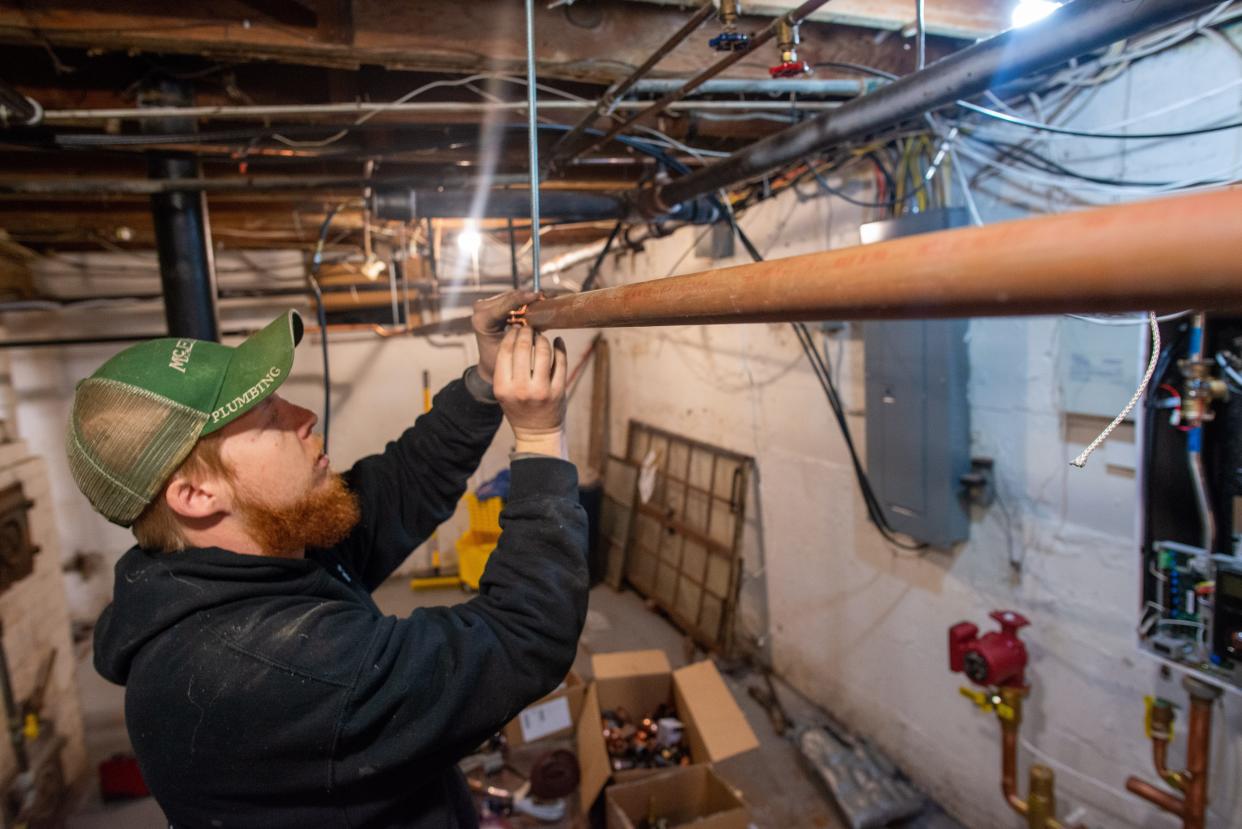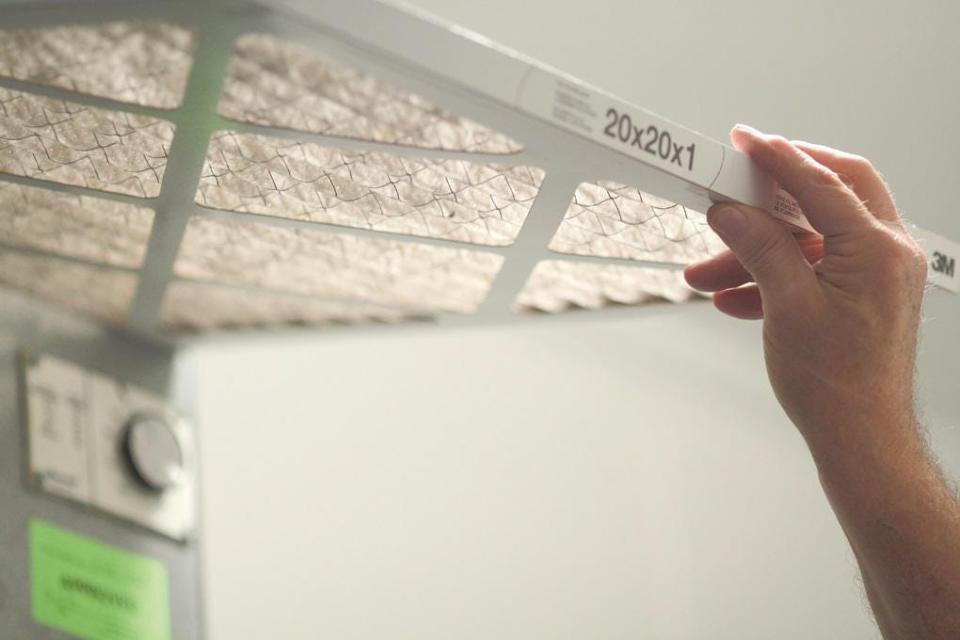Here's how to keep air-conditioning systems working at peak efficiency on hottest days

As Topeka shivered last December through its coldest wind chills in a generation, many home HVAC systems failed, leaving residents without heat for days.
But people still have time to get their residential air-conditioning systems checked out before summer brings the kind of oppressive heat that makes aging HVAC systems conk out on the day they're working the hardest.
Having an air-conditioning tune-up done annually is important, said Greg Hunsicker, vice president and residential HVAC service manager for Topeka-based McElroy's Inc.
Tune-ups typically cost less than $200, provided no additional repairs are needed, while replacing a complete residential heating and cooling system can cost anywhere from $7,000 to $18,000, Hunsicker said.
Just replacing the cooling-only portion can be anywhere from $4,500 to $10,000, he said.
What can I do to keep my air-conditioner running smoothly?
Change filters. The EPA recommends changing residential air filters at least every three months and perhaps as often as every month, depending on the type of filter, the level of air pollution in the house and the presence of people or pets with asthma or allergies. Dirty filters make it harder for air to flow through the system.
Keep the area around outdoor air-conditioning condensers clean. The boxy-looking outdoor condensers that are part of air-conditioning units need room to breathe, and residents can cut costs and help their units to run more effectively if they trim weeds and bushes to give those condensers room to do that, Hunsicker said.
Clean dirt and cottonwood balls off the coils on outdoor condensers. "Wash off the cottonwood or dust from outdoor coils carefully if you have been shown how to do that correctly and safely," Hunsicker said.
How can I save money on air-conditioning bills?

Set your thermostat a little higher, "For every degree you set your thermostat above 72° F, you’ll save 3% on your utility bill," says Consumer Reports. "On an average monthly bill of $122, that would snip off $43.92 per year. Also be sure to raise the temperature when you’re sleeping or away from home."
Buy a smart thermostat. Why cool rooms when you're out all day and the house is empty? Consumer Reports suggests residents can save $50 or more a year by purchasing a WiFi-enabled smart thermostat, which is easy to install and lets residents manage their central air-conditioning via tablet or smartphone. A smart thermostat can be acquired for as little as $131.37, Consumer Reports said.
Use fans. The Department of Energy recommends residents use fans to help reduce the need for high thermostat levels. Fans create a wind chill effect that makes people more comfortable in their homes, even if it's also cooled by natural ventilation or air-conditioning, that department said.
What are some air-conditioner trouble signs to watch for?
If their air-conditioner isn't maintaining normal temperatures in the home or if residents notice any ice forming on the larger refrigeration pipe connection at their outdoor unit, they should shut off their unit until it can be looked at by an HVAC tech, Hunsicker said.
What about heat pumps?
Those replacing their air-conditioning system might want to switch to using a heat pump system, which shifts heat in or out of the house, depending on the season, Consumer Reports said. Despite its name, a heat pump can also cool the home. Although a heat pump can cost about $5,900 on average, residents can save up to $948 on energy bills annually, compared to oil heating, Consumer Reports said.
Are tax credits available?
A $600 federal energy tax credit is available for those who install a new 97% efficient gas furnace, while a $2,000 federal energy tax credit is available for those who install a new high efficiency total electric heat pump system, according to the federal government's Energy Star website.
Contact Tim Hrenchir at threnchir@gannett.com or 785-213-5934.
This article originally appeared on Topeka Capital-Journal: How to keep air-conditioning going at peak efficiency on hottest days

